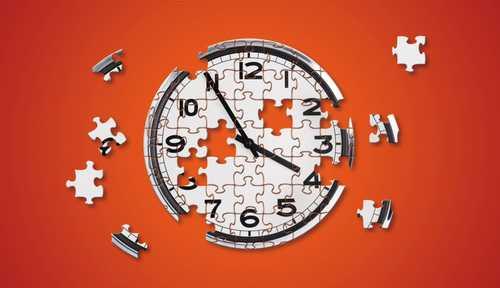Here's why you procrastinate, and 10 tactics that will help you stop
Curated from: alifeofproductivity.com
Ideas, facts & insights covering these topics:
5 ideas
·2.25K reads
1
Explore the World's Best Ideas
Join today and uncover 100+ curated journeys from 50+ topics. Unlock access to our mobile app with extensive features.
Takeaway : The more boring, frustrating, difficult, meaningless, ambiguous, and unstructured a task is, the more likely you are to procrastinate with it. 10 strategies that will help you stop: flip these characteristics to make a task less aversive, recognize how your brain responds to "cognitive dissonance", limit how much time you spend on something, be kind to yourself, just get started, list the costs of procrastinating, become better friends with future-you, completely disconnect from the Internet, form "implementation intentions", and use procrastination as a sign that you should seek out more meaningful work. Whew.
520
449 reads
I recently interviewed Tim about why we procrastinate, and about what tactics we can use to beat procrastination. What follows is everything I learned.
Before diving into some tactics to stop procrastinating, you should know why you procrastinate in the first place.
According to Pychyl, procrastination is fundamentally a visceral, emotional reaction to what you have to do.
When you put pressure on yourself to accomplish certain tasks, according to Pychyl you "have this strong reaction to the task at hand, and so the story of procrastination begins there with what psychologists call task aversiveness". The more aversive a task is to you, the more you'll resist it, and the more likely you are to procrastinate.
521
453 reads
Pychyl, in his research and during our interview, identified a number of task characteristics that make you more likely to procrastinate. Tasks that are aversive tend to:
- Be boring
- Be frustrating
- Be difficult
- Lack personal meaning and intrinsic rewards
- Be ambiguous (you don't know how to do it)
The more negative emotions you show toward a certain task, the more likely you are to procrastinate, and according to Pychyl, "any of these [characteristics] can do it".
521
450 reads
As Tim wrote in Solving the Procrastination Puzzle , "[t]he key issue is that for chronic procrastinators, short-term mood repair takes precedence. Chronic procrastinators want to eliminate the negative mood or emotions now, so they give in to feel good. They give in to the impulse to put off the task until another time." Then, "not faced with the task, they feel better."
520
449 reads
If you're interested, Tim had me on his podcast a couple of months ago to talk about AYOP and procrastination. I personally really like how the interview turned out. Even though it's 1 hour and 21 minutes long, I think you'll find it worth your time.
Alas, if there were a magical cure to stop procrastinating, Tim probably would have found it during his more than 20 years of research. But even though there is no magical cure, there are numerous tactics that you can use to quit procrastinating and get more done. I've taken my 10 favorite tactics that Tim talked in his book and during my interview with him, and they're below!
520
449 reads
IDEAS CURATED BY
Stasher 525552's ideas are part of this journey:
Learn more about habits with this collection
How to break bad habits
How habits are formed
The importance of consistency
Related collections
Similar ideas
12 ideas
Here's why you procrastinate & tactics that will help you stop
alifeofproductivity.com
3 ideas
Read & Learn
20x Faster
without
deepstash
with
deepstash
with
deepstash
Personalized microlearning
—
100+ Learning Journeys
—
Access to 200,000+ ideas
—
Access to the mobile app
—
Unlimited idea saving
—
—
Unlimited history
—
—
Unlimited listening to ideas
—
—
Downloading & offline access
—
—
Supercharge your mind with one idea per day
Enter your email and spend 1 minute every day to learn something new.
I agree to receive email updates
